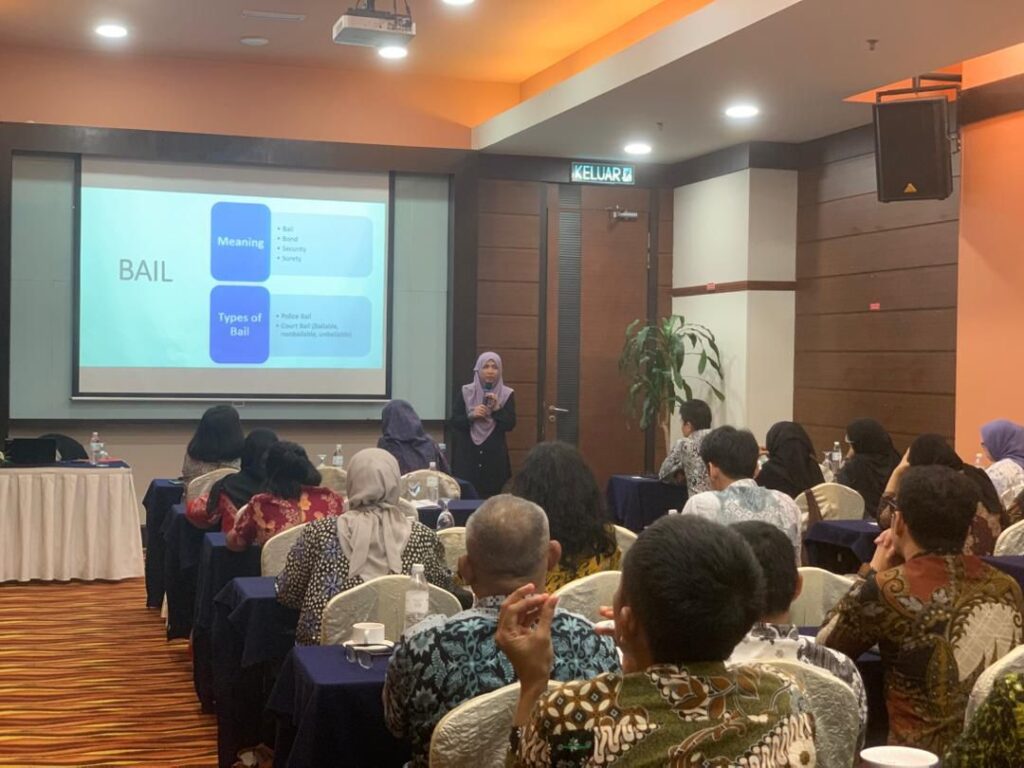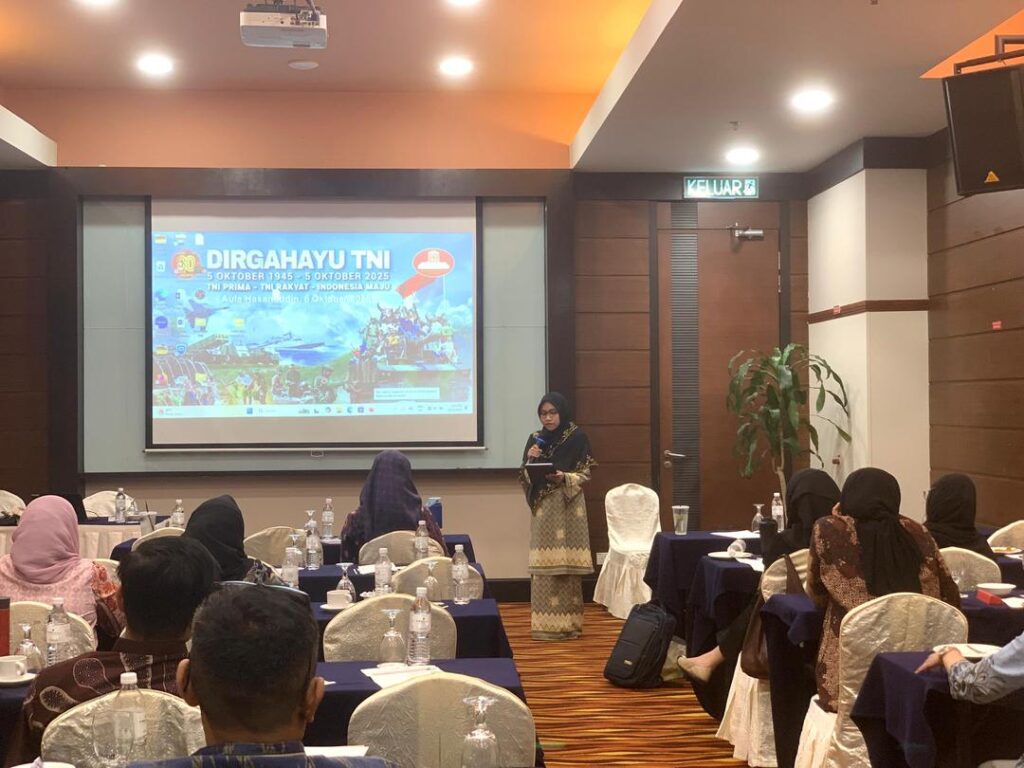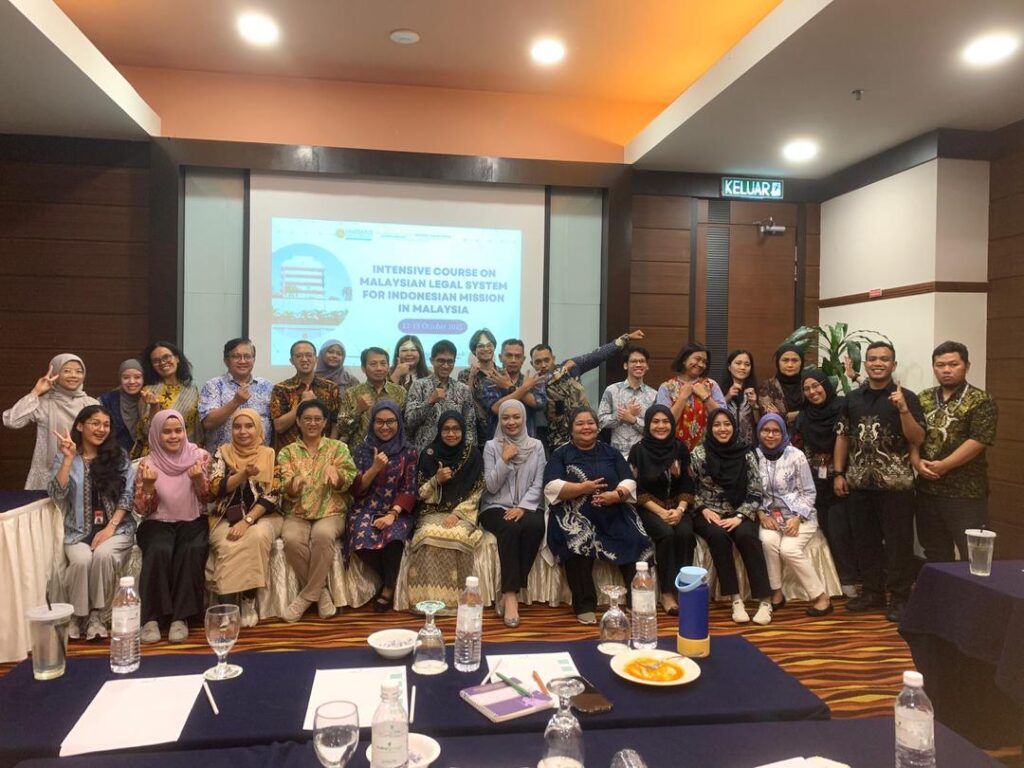
KUALA LUMPUR, 17 October 2025 – The Harun M. Hashim Law Centre was entrusted by the Embassy of the Republic of Indonesia to organize a two-day Intensive Course on the Malaysian Legal System for the Embassy’s staff in Malaysia. The course aims to strengthen the Embassy’s capacity to assist Indonesian citizens (ICs) dealing with legal issues in the country.
The programme commenced at the Malaysian Bar Council in Kuala Lumpur with opening remarks by Prof. Dr. Ida Madieha Abdul Ghani Azmi, Dean of the Ahmad Ibrahim Kulliyyah of Laws (AIKOL), IIUM; Mr. Balakrishna Balaravi Pillai, Deputy Chair of the Bar Council National Legal Aid and Yayasan Bantuan Guaman Kebangsaan (YBGK) Committee; and Mr. Danang Waskito, Deputy Chief of Mission of the Republic of Indonesia in Malaysia. They emphasised the importance of stronger bilateral cooperation in supporting Indonesian nationals who require legal assistance.

Presentations on the first day focused on immigration and labour matters affecting Indonesian workers in Malaysia. Selvana A/L Chinniah from Jabatan Imigresen Malaysia shared procedures relating to immigration status, documentation, overstay, and deportation. Ms. Teoh Alvare explained worker protections under Malaysian labour law, including rights to fair wages and avenues for resolving employment disputes.
The training continued with a session from the Malaysian Prison Department on the Transfer of Prisoners process involving Indonesian detainees. The final session of the day was conducted by Mdm. Siti Aishah Aslah from IIUM, who discussed cross-border insolvency cases and cooperation where financial disputes span across both countries.

On the second day in Nilai, Negeri Sembilan, the focus shifted to the Malaysian criminal justice system. Dr. Nor Hafizah Mohd Badrol Afandi from IIUM introduced the structure and key responsibilities of legal enforcement bodies such as the courts, Royal Malaysia Police, and Immigration Department. Assoc. Prof. Dr. Zuraini Ab Hamid then guided participants through criminal procedure processes including arrest, detention, trial, bail, and access to legal representation. She also provided an important briefing on handling Trafficking in Persons (TPPO) cases, with emphasis on victim assistance and the role of shelters.

To reinforce practical understanding, a simulation exercise allowed participants to work through real case scenarios involving Indonesian citizens in criminal processes, improving readiness in providing timely support.
The programme strengthened the Indonesian Mission’s legal literacy and operational coordination with Malaysian authorities, ensuring improved protection and services for Indonesians residing or working in the country. The Embassy expressed gratitude to all Malaysian experts and institutions involved for their commitment and cooperation.

